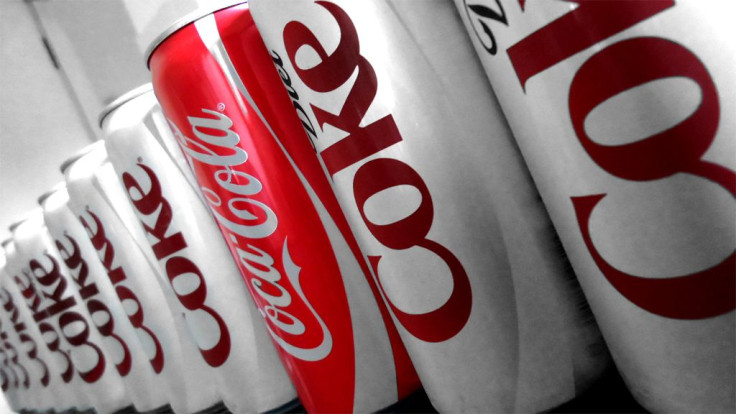Coca-Cola, Pepsi Fund Study Claiming Diet Soda Is Good For Weight Loss, But Is It True?

The soda industry, including Coca-Cola and Pepsi, funded a study claiming diet soda can aid in weight loss — and may possibly be even healthier than drinking just water at times. Soft drink companies have funded similar studies through the years showing soda in a positive light, although a large body of research conflicts with these results.
The study, which was published in the International Journal of Obesity, was funded by the International Life Sciences Institute, or ILSI, a nonprofit that has been questioned before when it comes to neutrality; the ILSI’s board of directors is largely made up of Coca-Cola, Nestlé, and PepsiCo executives.
The researchers reviewed some 5,500 studies that examined low-energy sweeteners like Diet Coke and other diet soda drinks in relation to energy intake (calories) and body weight. They hypothesized that because diet sodas had fewer calories and sugar than other soft drinks, they could help people lose weight and decrease their overall calorie intake. They even argued that diet sodas were just as good as water, and sometimes even better, in aiding weight loss.
“We found a considerable weight of evidence in favor of consumption of low-energy sweeteners in place of sugar as helpful in reducing relative energy intake and body weight, with no evidence from the many acute and sustained intervention studies in humans that low-energy sweeteners increase energy intake,” the authors write in the conclusion. “Importantly, the effects of low-energy sweetener beverages on body weight also appear neutral relative to water, or even beneficial in some contexts.”
The research on this issue is conflicted: For one thing, researchers can’t decide whether regular soda is worse than diet soda, or if they’re both equally bad for you. Regular soda may be packed with more filling sugar and thus fat, but diet soda has been shown to contain unhealthy chemicals that could have a long-term effect on the body, increasing the risk for stroke, cancer, heart attacks, and metabolic syndrome. In addition, one 2014 study found that, contrary to popular belief, diet sodas may make it harder to lose weight — overweight Americans who drank diet drinks actually ended up eating more food to fill up.
While the ILSI-funded study may have been peer-reviewed and examined a wide array of studies, it still may have been swayed by competing interests. This isn’t the first time Coca-Cola and other soda companies have launched political campaigns to change public perceptions about soda. Last year, an anti-obesity group funded by Coca-Cola disbanded after allegations surfaced that it was downplaying the role of soda in obesity. This was part of a Coca-Cola campaign to study how obesity was best combated by exercising, not by reducing calories or soft drink intake. That being said, don’t let Coca-Cola’s emotional marketing sway your decisions.
Source: Rogers P, Hogenkamp P, Graaf C, Higgs S, Lluch A, Ness A. Does low-energy sweetener consumption affect energy intake and body weight? A systematic review, including meta-analyses, of the evidence from human and animal studies. International Journal of Obesity, 2016.



























